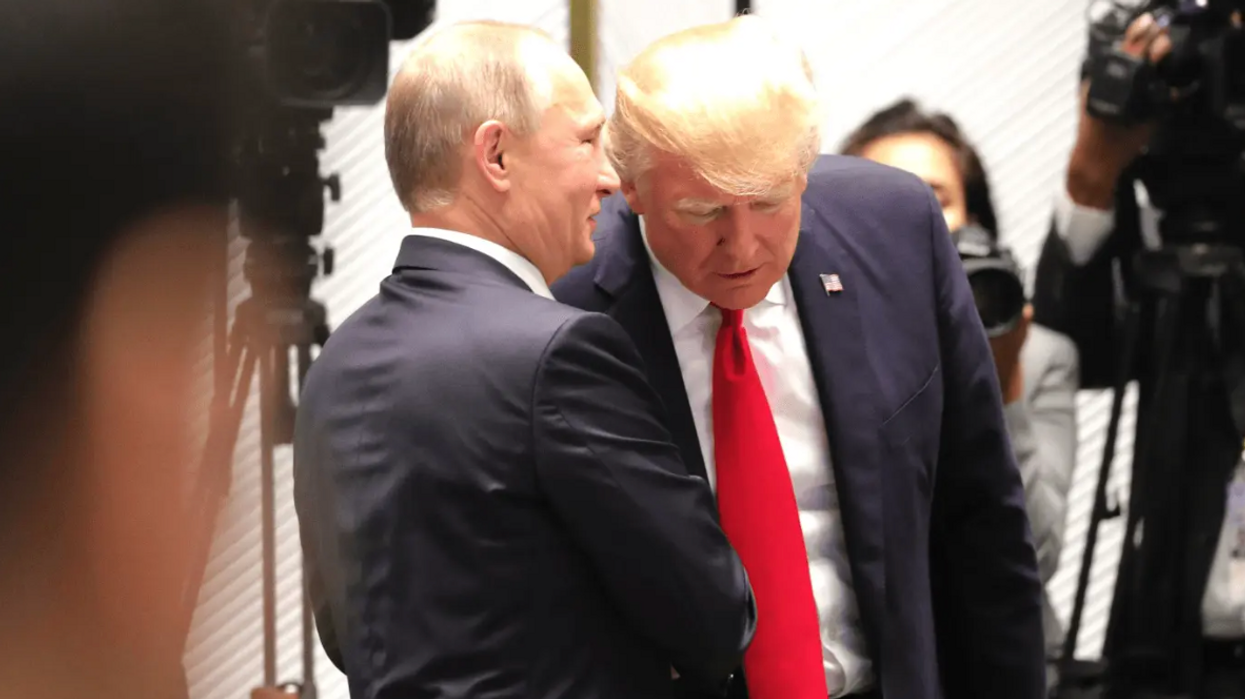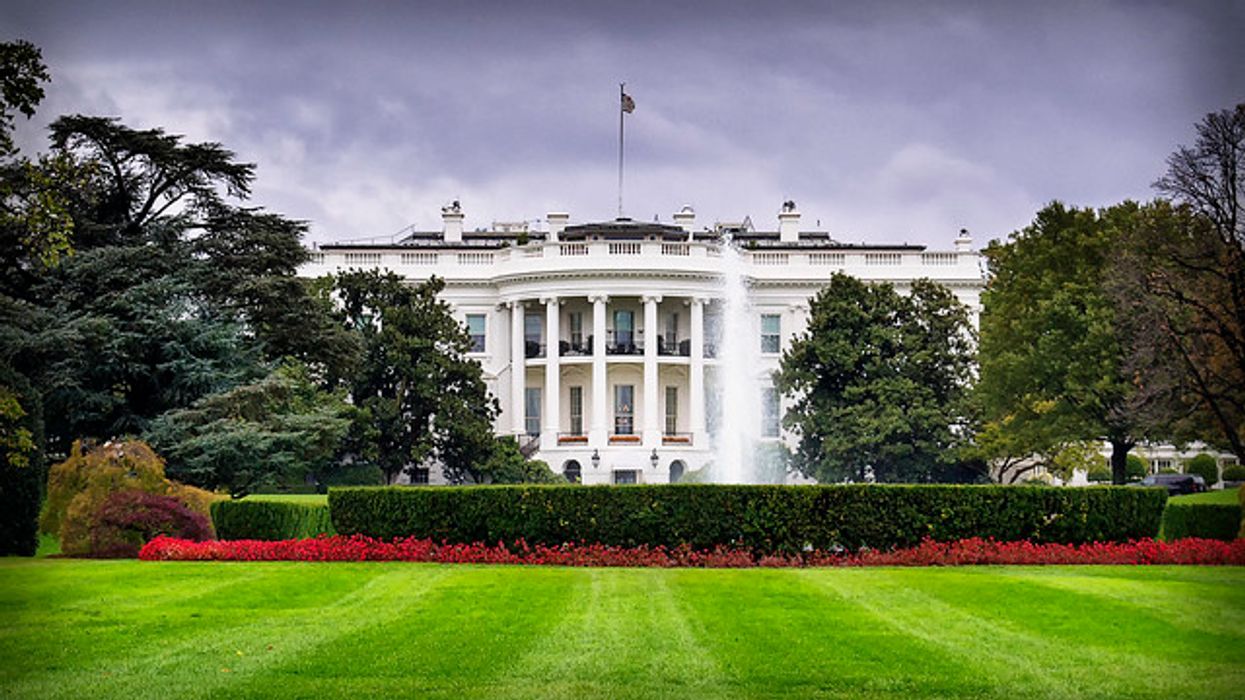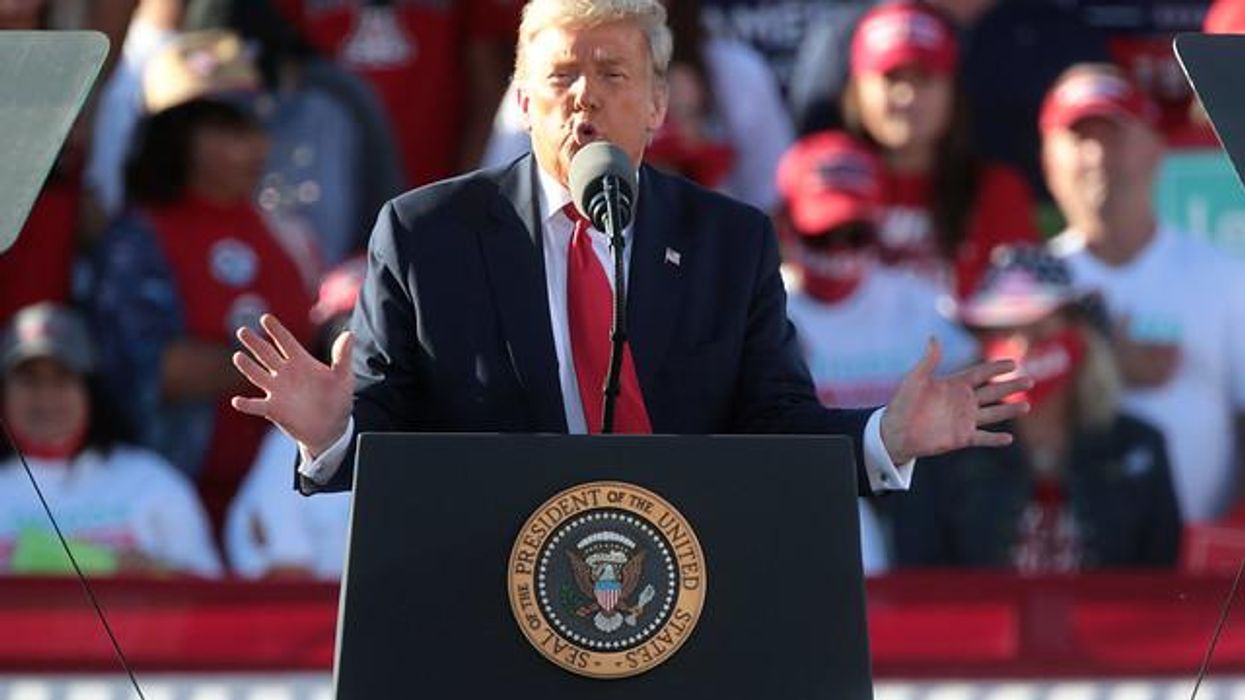The Cowardice Of Conservative And Business Elites Led Straight To This Disaster
A Wall Street Journal editorial described President Donald Trump's tariffs as the "dumbest trade war in history." It's important not to overrate intelligence, even in leaders. Judgment and maturity may be more crucial. But Trump is no ordinary dunce. He displays a stubborn stupidity that threatens to plunge the world into chaos and potentially into depression.
It should go without saying that our constitutional system was never meant to be so vulnerable to the whims and fantasies of one man. Nothing as critical as the entire world trading system or the maintenance of the NATO alliance should be decided by which side of the bed the emperor woke up on today, but due to the cowardice and cupidity of the GOP and others, we've gradually lost our antibodies to strongman rule and find ourselves bowing before a power-drunk man/child.
His peculiar blind spots and obsessions now threaten everyone. All of those supposedly worldly-wise Wall Street types who either supported or did not oppose Trump's return to power deserve some of the blame today. One thinks of Jamie Dimon, CEO of JPMorgan Chase, who has a long history opposing tariffs but was becalmed to the point where he told a Davos audience in January that tariffs are a good "economic weapon" and that critics should "get over it."
This kind of insouciance in the face of a severe economic threat is breathtaking. Even if Wall Street executives and others who chose to believe that Trump was preferable to Kamala Harris were indifferent to the civil liberties implications of a Trump second term and uninterested in public health and the administration of justice, you'd think they'd be interested in their own bottom lines. You would think they might have noticed that one of Trump's only long-term convictions was that America had been victimized by world trade and that tariffs would solve all of our problems.
Trump has an obsession with trade. He always has, and his views are wrong historically, economically and even morally. At his Rose Garden declaration of "Liberation Day" he repeated his oft-stated view that the U.S. has been "looted, pillaged, raped and plundered by nations near and far" for 50 years and more. Long-term trade deficits, he declared, are a "national emergency" that "threaten our way of life."
In vain did a procession of first-term advisers attempt to disabuse Trump of his absurd views about trade. They patiently explained that it is Americans, not foreigners, who pay tariffs. He was deaf to this. They noted that trade deficits are not a measure of wealth, far less who is "winning" or "losing." If we buy coffee from Costa Rica and they buy nothing from us (which isn't true, but just as an illustration), in no sense has Costa Rica taken advantage of, far less "raped," America. We gave them dollars and they gave us coffee in return.
That is called commerce, and nearly every exchange between a willing buyer and willing seller yields two winners, not one. Besides, as those first-term Trump advisers also tried to convey, those Costa Rican businessmen then take those dollars and buy American assets.
The global trading system the United States shepherded into existence in the post-World War II era has been a boon to people around the globe, and no one has benefitted more than the people of the United States. We've run trade deficits with many nations for many reasons. Sometimes that's a reflection of savings versus investment rates in other countries (think Germany). Sometimes it's a reflection of relative wealth (Vietnamese consumers can't afford to purchase as many American products as Americans can afford to purchase of Vietnamese products).
But in any case, it doesn't really matter because countries that run big trade deficits can be super wealthy. The United States has run trade deficits since the late 1970s and has also been the richest nation on the globe during those years. In fact, even during Trump's first term, which he has widely proclaimed to have been the greatest economy in the history of the universe, we ran consistent trade deficits. In fact, the trade deficit increased during the first Trump administration from $481 billion in 2016 to $679 billion in 2020.
In a saner world, Trump's delusions would not guide U.S. policy. They'd be checked by his own advisers, the Congress and the public. But here we are.
This is not the first time in history that a leader's misconceptions have been implemented on a broad scale, but you have to reach into the history of dictatorial regimes to find parallels. In the Soviet Union in the 1930s, the ideas of agronomist Trofim Lysenko gained acceptance not because they were true but because Stalin wanted them to be true. Lysenko promised a new golden age with dramatically improved crop yields that would transform even Siberia into a paradise of orchards and gardens. This was touted by Stalin as the "new biology" and ruthlessly enforced. Naysayers were arrested and executed. The result was repeated famines in the USSR and in China, where Mao also embraced the fallacy. Millions of men, women and children starved to death because a leader was able to impose his fantasies on a whole society.
Global trade is an engine of prosperity, and one man's stupidity now threatens billions.
Reprinted with permission from Creators.

















